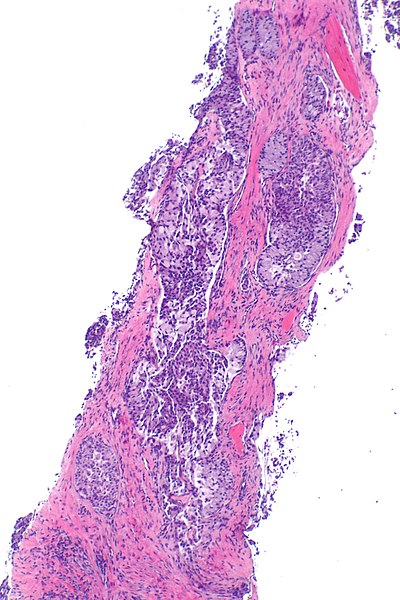Consistent Terminology for Comprehensive Biomarker Testing

Download PDF of Biomarker Consistent Terminology Pledge
CONSISTENT TESTING TERMINOLOGY PLEDGE
Commitment to Educate Lung Cancer Patients Using “Biomarker Testing” or “Comprehensive Biomarker Testing”
Comprehensive biomarker testing that includes targeted driver mutations and immunotherapy biomarkers (such as PD-L1) empowers patients and their care team with personalized and specific information about their cancer. This type of multiplex panel testing, where multiple genes are tested at one time, represents the first step to accessing the promise of precision medicine, which offers patients the highest potential for long, high-quality lives. Medical societies have reinforced this direction; the International Association for the Study of Lung Cancer (IASLC), the College of American Pathologists (CAP) and the Association for Molecular Pathology (AMP) and the National Comprehensive Cancer Network (NCCN) guidelines recommend the use of testing for multiple mutations at one time rather than single-gene testing following an advanced stage non-small cell lung cancer diagnosis.
Some patients, particularly at community cancer centers where the majority of cancer patients are treated, don’t receive comprehensive biomarker testing.[i] Patients/family members must be educated on testing and prepared to ask to have comprehensive biomarker testing performed. But patients may be confused about what kind of testing to ask for due to the conflicting, confusing terms, including molecular testing, comprehensive genomic profiling, genetic testing, mutation testing, DNA sequencing, and many more.
The lung cancer community started studying the conflicting terminology landscape in 2015, when LUNGevity Foundation conducted an audit of the terms used in educational resources on testing from patient advocacy groups, industry, government, and other stakeholders. The study revealed that there were 17 different terms and none that dominated in lung cancer patient education materials to describe testing. The lung cancer community gathered at a multi-stakeholder meeting to discuss the results and select a term to use consistently for patient education. Participants selected the term “biomarker testing” because it is a broad term that incorporates testing for driver mutations as well as non-genomic mutations like PD-L1 and tumor mutational burden (TMB). [ii]
Since then, CancerCare published a white paper, which was presented at World Lung 2018 and authored by numerous advocacy organizations, reinforcing the need for consistent use of the term biomarker testing or comprehensive biomarker testing to “avoid confusing patients.” A March 2019 paper in the Journal of Thoracic Oncology authored by several KOLs and patient groups states that the “standardization of the language used to describe biomarker testing is urgently needed.”
The advocacy community can play an important role in helping to alleviate patient confusion on the type of testing needed at diagnosis and progression. As members of the lung cancer community, we ask that you consider commit your organization’s new external educational materials and communications on testing to include the term “biomarker testing” or “comprehensive biomarker testing.” For more questions about this, please contact.
Win Boerckel, CancerCare: wboerckel@cancercare.org
Dusty Joy, LiveLung: dusty@dustyjoy.org
Cindy Langhorne, Caring Ambassadors: cindy@caringambassadors.org
Nikki Martin, LUNGevity: nmartin@lungevity.org
PLEDGE FOR LUNG CANCER ADVOCACY COMMUNITY MEMBERS
As (Insert Name of Patient Advocacy Organization) is committed to supporting lung cancer patients and caregivers, we play a role in delivering timely and accurate information to lung cancer patients and their loved ones. One topic that requires consistent proactive education to the lung cancer patient and caregiver community is comprehensive biomarker testing. Access to high-quality, timely comprehensive biomarker testing is instrumental for matching patients to the appropriate targeted therapy or immunotherapy, leading to improved outcomes and better quality of life.
(Insert Name of Patient Advocacy Organization), commits to using the term “biomarker testing” or “comprehensive biomarker testing” in all new patient education materials and communications efforts, including social media. Further, our organization will focus on common messaging and speaking with one voice (while keeping our separate identity) with other patient advocacy organizations in educating lung cancer patients on the importance of comprehensive biomarker testing as a vital initial step in their lung cancer experience.
We will strive to ensure that, as appropriate, our organization’s future lung cancer patient facing print and online materials address the below key themes:
WHO – should get tested? (e.g. histology and stage)
WHAT – is comprehensive biomarker testing?
WHEN – should a patient have a conversation with a physician about getting tested?
WHERE – is testing done? (where on the body is tissue or blood taken)
WHY – is lung cancer comprehensive biomarker testing so important?
HOW – is comprehensive biomarker testing done?
On behalf of (Insert Name of Patient Advocacy Organization), we (Insert name of individual), (Insert title), commit to using the term “biomarker testing” or “comprehensive biomarker testing” in all new patient facing education, and to stay consistent, as appropriate, in addressing the above key themes in future print and online patient education materials.
_____________________________________ Date ___________________
Signature
[i] Gutierrez ME, Choi K, Lanman RB, et al. Genomic profiling of advanced non-small cell lung cancer in community settings: gaps and opportunities. Clin Lung Cancer 2017; 18:651-9.
[ii] Need for Consistent Language around Biomarker Testing in the Diagnosis and Treatment of Lung Cancer, Andrea Ferris, MBA; Susan Mantel, MBA; Margery Jacobson, MBA, Upal Basu Roy, PhD, MPH
